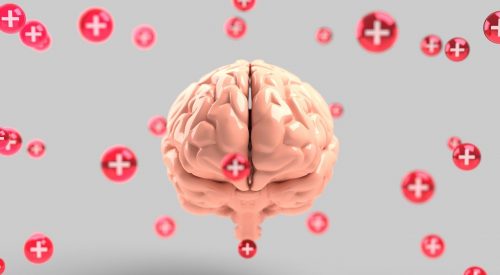Today’s world is the internet world. Our days begin with our phones and end with them, and the internet has become an indispensable part of our lives. The internet that is constantly being blamed for half our lives problems (even though it is just a matter of self control and not really the internet’s fault), is also serving as a solution to the said problems. A growing trend in today’s mental health sector is online therapy. It might not be the complete replacement for clinical therapy, but it is certainly effective to a great extent. We will discuss the online therapy sites available for various mental illnesses here.
1. Depression and Anxiety Treatment
Depression and anxiety are the most commonly encountered mental illness in today’s world. Some forms of therapy offered include Cognitive-behavioral therapy (CBT), Interpersonal therapy (IPT), and Acceptance and commitment therapy (ACT). Clients can choose therapy sites with trained listeners or professional therapists based on their need and affordability. A few of the most popular online therapy sites to get in touch with therapists for treatment include BetterHelp, 7 Cups of Tea and Talkspace. BetterHelp provides telephone counselling for many mental health issues, including depression and anxiety. MDLive also provides psychiatric services, and the psychiatrists can prescribe medicines. Anxiety and Depression Association of America (ADAA) is an online peer-to-peer support group that serves as a safe and supportive platform for discussions.
2. Couple therapy
Online therapy for married couples as well as people in relationships focuses on improving communication between each other, enhances emotional connection, builds empathy and respect, renews commitment, and teaches to effectively say no. Like how a relationship needs effort from both people involved to work, couple therapy is also effective only when there is mutual effort. This online aspect is highly beneficial to couples who are struggling in a long distance relationship. They can be in two corners of the world and still be joined in the same therapy session. The 24*7 service provided makes it easier for couples who live separately in different time zones. Some of the sites known for couple therapy include Regain, E-Therapy Cafe, Growing Self and Couples Therapy Inc. Couples Therapy Inc. also offers couples retreats.
3. Therapy for Kids and Teens
When discussing therapy, many assume that it is just for adults. But at times, kids and teens too need therapy sessions for various reasons such as anxiety, depression, stress, bullying, eating disorders, and etc. The types of therapy provided include Cognitive Behavioral Therapy (CBT), Dialectical Behavioral Therapy, trauma-focused CBT, and mindfulness. Most of the sites require parent or guardian’s consent to sign up. Even though parental input is welcomed, the involvement of the parent depends on the mental health issues and treatment methods chosen. Some of the sites for teen and children’s therapy include BetterHelp, TeenCounseling, Amwell, Talkspace and 7 Cups.
4. Therapy for Addiction
Addiction doesn’t mean drug addiction alone, but all kinds of substance and behavioral addiction. It can disrupt one’s life to a great extent. When the stigma around mental health issues such as depression or addiction are highly reduced, the society still looks down upon addicts. Online therapy might be highly beneficial to protect a person from the stigma while still ensuring they get the help needed to recover from their addiction. Online therapy for addiction usually follows Cognitive Behavioral Therapy (CBT) or Motivational Interviewing. One can also follow blended therapy, which is when a person has a few face-to-face sessions with a therapist while using online therapy during the other times. This would be helpful in making sure they don’t relapse into their old habits. Some of the best online therapy sites for addiction include BetterHelp, Talkspace, Doctor on Demand and MDLive. Both Doctor on Demand and MDLive provide access to psychiatrists as well.
Online therapy has very minimal differences compared to face-to-face therapy sessions. But it is advisable for one to do their research about the service provider platforms before signing up. One must check the credentials of the therapists, privacy and confidentiality clauses and the site’s area of expertise. And patients with suicidal and self-harming tendencies are advised to seek immediate doctor support and not to rely on online therapy.



